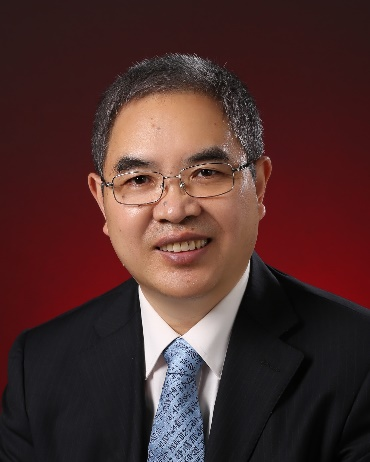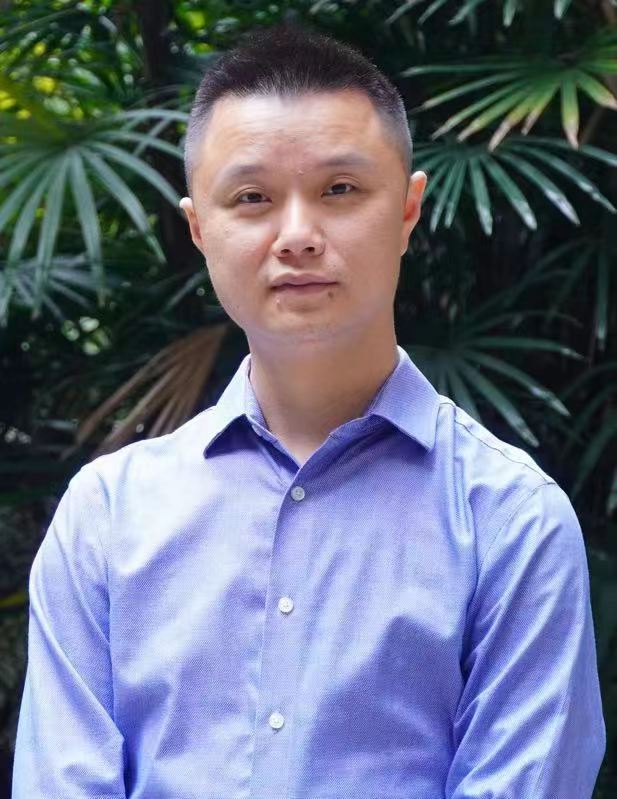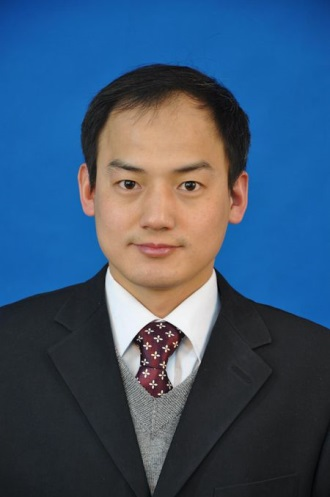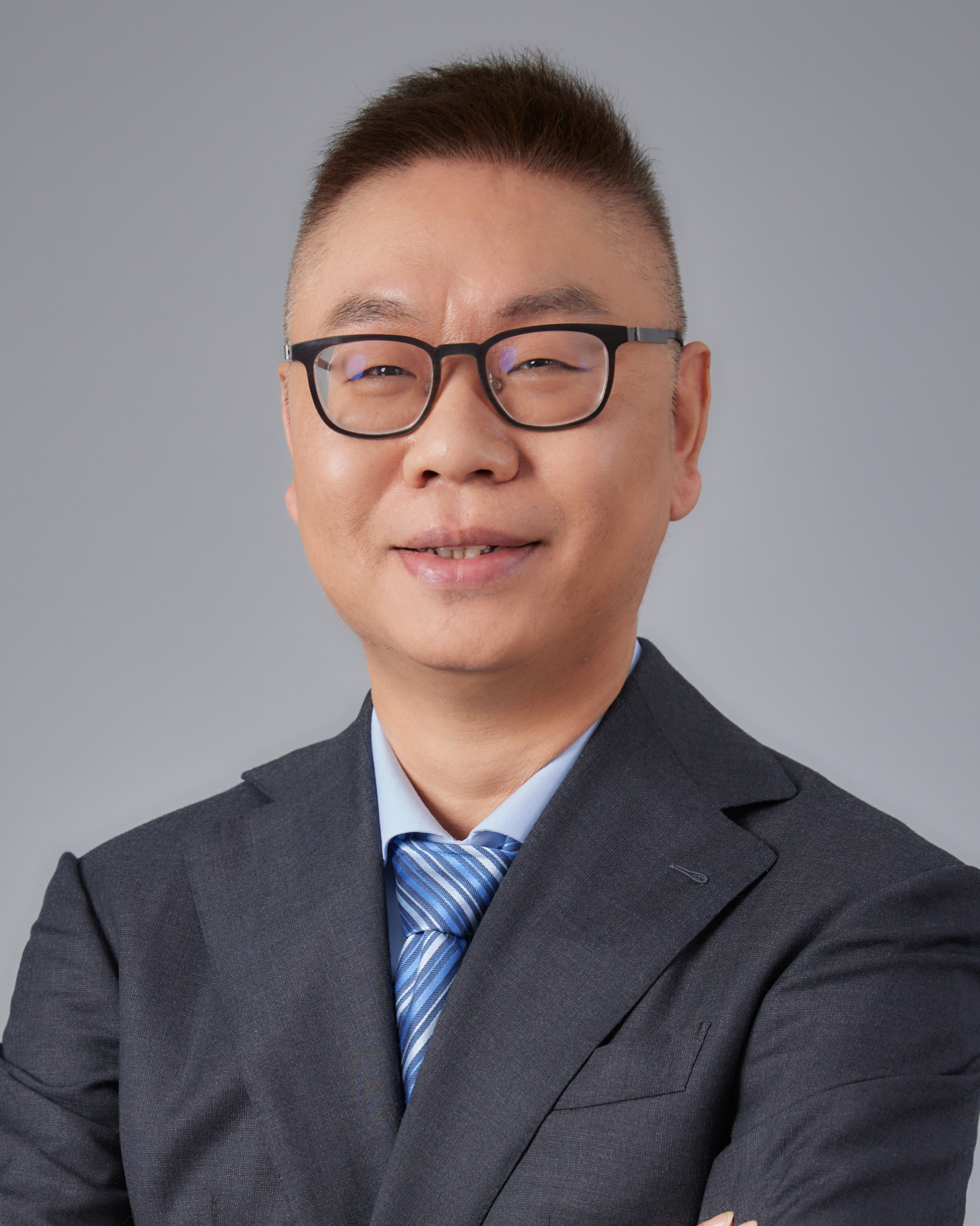
Keynote Speaker I

Prof. Pingyi Fan, IET Fellow, Academician of the United States National Academy of Artificial Intelligence,
Tsinghua University, China
Biography:
Dr. Pingyi Fan is a professor and the director of open source data recognition innovation center, Department of Electronic Engineering, Tsinghua University. He is member (Academician) of the united states national academy of artificial intelligence (NAAI) and Fellow of IET and IET Fellowship international Assessor. He received Ph.D. degree at the Department of Electronic Engineering of Tsinghua University in 1994. From 1997 to 1999, he visited the Hong Kong University of Science and Technology and the University of Delaware in the United States. He also visited many universities and research institutes in the United States, Europe, Japan, Hong Kong and Singapore. He has obtained many research grants, including national 973 Project, 863 Project, mobile special project and the key R&D program, national natural funds and international cooperation projects. He has published more than 600 papers (ORCID) including 171 IEEE journals and more than 10 ESI highly cited papers as well as 4 academic books. He also applied for more than 40 national invention patents, 7 international patents. He won 10 best paper awards of IEEE international conferences, including IEEE ICCCS2023 and 2024, ICC2020 and Globecom 2014, and received the best paper award of IEEE TAOS Technical Committee in 2020, the excellent editor award of IEEE TWC (2009), the most popular scholar award 2023 of AEIC, the second natural Prize of CIC (2023) and several international innovation exhibition medals, i.e. Gold Medal at the Russian Invention Exhibition-2024, Silver Medal at Geneva Invention Exhibition-2023, and Silver Medal at Paris Invention Exhibition-2023 etc. and served as the editorial board member of several Journals, including IEEE and MDPI. He is currently an Associate Editor of IEEE Transactions on Cognitive Communications and Networking (TCCN), the editorial board member of Open Journal of Mathematical Sciences and IAES international journal of artificial intelligence, the deputy director of China Information Theory society, the Co-chair of China's 6G-ANA TG4, and the chairman of Network and Communication Technology Committee of IEEE ChinaSIP. His current research interests are in 6G wireless communication network and machine learning, semantic information theory and generalized information theory, big data processing theory, intelligent network and system detection, etc.
Title: Identifying Machines with Sounds:Anomaly Detection with GAN-based Technology
Abstract:
Digital Twins and Industry 4.0 are becoming the most promising trends for modern industrial manufacturing and production managements, where anomaly detection is the critical issue. There are two different ways to do it. One is based on the images or videos by using sensors with camera; Another is based on the sensors of audios. In fact, the techniques with images or video can only check the abnormal status of the machine or equipment appearing in the surfaces. But the sounds from the machine or equipment can be used to check their inner anomaly status. In this talk, we first review the developments of the anomalies identification problem by machine sounding and then present a new generative adversarial network (GAN) which combines GAN with autoencoder---AEGAN, where anomalies are detected from two complementary perspectives: error reconstruction measured by the generator and embedding features extracted from the discriminator. The experimental results will show that AEGAN reaches the state-of-the-art performance over two DCASE datasets among unsupervised methods, which indicates that the AEGAN performs well on widely-used working scenarios. We also introduce MIM-GAN technology for rare event detection. Finally, some conclusions and future research directions are given.
Keynote Speaker II

Prof. Maode Ma, IET Fellow, Qatar University, Qatar
Biography:
Prof. Maode Ma, a Fellow of IET, received his Ph.D. from the Department of Computer Science at the Hong Kong University of Science and Technology in 1999. Now, Prof. Ma is a Research Professor at the College of Engineering at Qatar University in Doha, Qatar. He has extensive research interests, including network security and wireless networking. He has over 520 international academic publications with more than 12000 citations. Prof. Ma is a senior member of the IEEE Communication Society and a member of ACM. Prof. Ma has been a Distinguished Lecturer for the IEEE Communication Society from 2013 to 2016 and from 2023 to 2024.
Speech Title:Design of Incremental Lifetime Learning IDSs for VANETs
Abstract:
A vehicle Ad Hoc Network (VANET) is one of the most important approaches for intelligent vehicles to communicate under complex road conditions. However, as a VANET is working under wireless and dynamic conditions, it is under the threat of various malicious attacks. One efficient solution to counter those attacks is the Intrusion Detection System (IDS), which can detect intrusions to the VANET based on the statistical machine learning technique. Nowadays, most IDS solutions have a problem that they can only detect attacks which have already known when the IDS is designed/trained. For unknown attacks, most IDSs are inefficient. A blockchain-based Lifetime Learning IDS (LL-IDS) framework has been designed to address this problem. It applies a blockchain to store uncertain data that an IDS cannot decide. And it is highly likely to be a new type of attack. With the help of traditional security agencies such as universities, this uncertain data can be labeled to train the IDS model. The incremental learning models are shown to have great potential in this scenario. In this talk, I introduce a novel IDS named Incremental Lifetime Learning IDS (ILL-IDS) based on LL-IDS. Numerical experiments show that the computational time consumption could be much decreased by applying the ILL-IDS to a public VANET dataset.
Keynote Speaker III

Prof. Tang Liu, Vice dean of College of Computer Science, Sichuan Normal University, China
Biography:
Tang Liu is a Professor, Vice Dean, and Ph.D. supervisor at the College of Computer Science, Sichuan Normal University. His research interests include the Internet of Things, mobile computing, and wireless charging. In recent years, he has published over 60 papers in prestigious conferences and journals such as INFOCOM, ICDCS, IPDPS, IEEE/ACM TON, IEEE TMC, ACM TOSN, IEEE TWC, IEEE TCOM, Chinese Journal of Computers, and Journal of Software, including 15 papers in CCF-A conferences and journals. He has served as a PI for over 10 research projects, including two by the National Natural Science Foundation of China. He is also a reviewer for several CCF A/B journals and serves as a chair or program committee member for several international academic conferences.
Speech Title:Advances in Efficient Wireless Rechargeable Networks
Abstract:
With the maturation of wireless power transfer technology, Wireless Rechargeable Networks (WRNs) have attracted widespread attention from both academia and industry. However, the inevitable attenuation of radio waves during transmission and environmental interference have made charging efficiency a major bottleneck limiting the development of WRNs. In this talk, I will present our team’s recent research efforts aimed at improving wireless charging performance and building efficient WRNs. These efforts include: (1) Utilizing the neglected back lobe for improving charging efficiency; (2) Designing dynamic power controlling scheme to meet real-time charging demands; (3) Developing wave interference-based safe charging scheme to ensure electromagnetic radiation safety for sensitive individuals; (4) Enhancing charging performance by exploiting the multipath effects caused by environmental objects.
Keynote Speaker IV

Prof. Mouquan Shen, Nanjing Tech University, China
Biography:
Mouquan Shen, Professor of Nanjing Tech University, the "Six Talent Peaks" of Jiangsu Province. Postdoctoral at Southeast University, visiting scholar at overseas universities such as the University of Hong Kong, Yeungnam University, South Korea, and the University of Adelaide, Australia. He is the PI of more than 10 provincial-level projects, including the National Natural Science Foundation of China, the National Bureau of Foreign Experts Affairs, and the Jiangsu Provincial Natural Science Foundation. In recent years, more than 100 papers with an H-index of 24 have been published in journals such as IEEE Transactions on · Automatic Control, IEEE Transactions on Cybernetics, and IEEE Transactions on Systems, Man, and Cybernetics: Systems. He has been appointed Editor-in-Cheif, Associate Editor, or Editorial Board Member of 12 international journals. He is also an active reviewer of over 80 domestic and international journals, including IEEE, TAC, and Automatica, as well as the corresponding reviewer for the National Natural Science Foundation of China and multiple provincial and municipal science and technology projects.Title: Research on key techniques of optimization and control of intelligent manufacturing via data-driven.
Abstract:
This talk focuses on the research on key techniques of optimization and control of intelligent manufacturing via data-driven. Three data-driven control strategies are designed by using finite-time control method, disturbance estimation method combined with extended state observer and adaptive dynamic programming method. Three novel event-triggered mechanisms are constructed via introducing finite-time parameter, true and estimated tracking errors, and instantaneous and average data. Sufficient conditions are proposed to ensure the ultimately uniform boundedness of the resultant closed-loop error systems. Several examples are provided to validate the effectiveness of the proposed schemes.
Keynote Speaker V

Assoc. Prof. Jiadi Yu, Shanghai Jiao Tong University, China
Biography:
Jiadi Yu is an Associate Professor in Department of Computer Science and Engineering, Shanghai Jiao Tong University. His research interests include mobile computing, cyber security, Internet of Things. Prof. Yu has published more than 100 papers in international leading journals and conferences.
Title: RFID-based Side-channel Eavesdropping Attacks
Abstract:
Side-channel eavesdropping attacks utilize various sensors to capture target state characteristics related to acoustic content. Side-channel eavesdropping attacks, not susceptible to environmental noise, maintains effective performance even in high-noise settings, offering a new solution for human-machine voice interactions. This talk explores new approaches to side-channel eavesdropping attacks using RFID in real-world scenarios. Specifically, it examines the characteristics of target states related to acoustics captured via RFID, aiming to develop accurate and robust methods for side-channel eavesdropping in complex environments. The research is particularly interested in utilizing passive RFID tags to explore potential side-channel eavesdropping scenarios in real settings, uncovering possible forms of eavesdropping attacks.